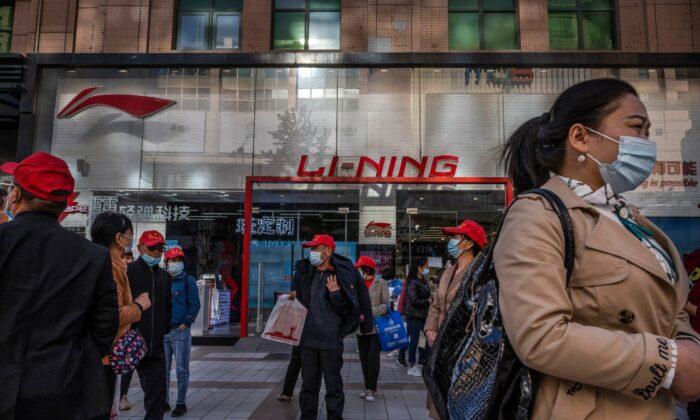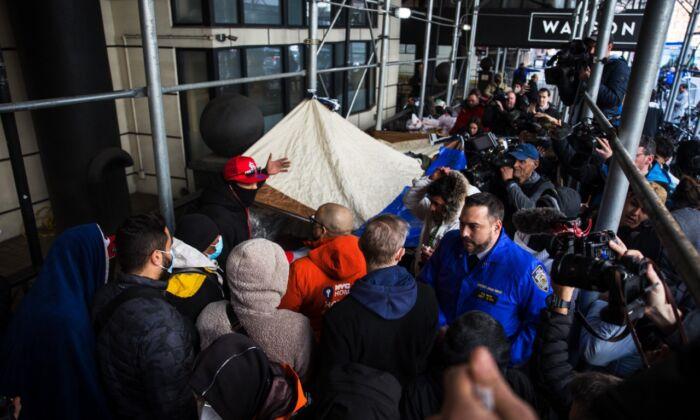U.S. Customs and Border Protection (CBP) has banned all goods made by a leading Chinese sports brand, citing its use of North Korean labor, amounting to a breach of U.S. sanctions.
Founded by former Olympic gymnast Li Ning, Li-Ning Sporting Goods is a dominant sportswear and sports equipment company in China. After reviewing its supply chain, the U.S. customs agency announced on March 15 that it would be detaining its products at all U.S. ports of entry over its use of North Korean labor, a violation of U.S. sanctions. The order was effective from March 14.
“Such merchandise will not be entitled to entry unless the importer provides clear and convincing evidence that their merchandise was not produced with convict labor, forced labor, or indentured labor under penal sanctions within 30 days of notice of detention,” the statement reads.
Otherwise, the detained products can be subject to seizure and forfeiture, the CBP said.
The move was made to “uphold the fundamental value of human dignity” and to ensure all imported goods to the United States are free from forced labor, CBP Office of Trade Executive Assistant Commissioner AnnMarie Highsmith said.
Li-Ning didn’t respond by press time to a request by The Epoch Times for comment.
The Chinese company has previously attracted attention for supporting the use of cotton from China’s far west Xinjiang region, where the Beijing regime has engaged in an expansive campaign of repression against Uyghurs and other Muslim minorities. Cotton from the region is likely tainted with Uyghur forced labor, researchers say. Li-Ning has listed its use of Xinjiang cotton on clothing tags for some time.

A 2017 U.N. Security Council resolution demanded that countries repatriate all North Korean workers by Dec. 22, 2021, to stop them from earning foreign currency for North Korea’s nuclear and ballistic missile programs.
The United States has estimated that Pyongyang was earning more than $500 million a year from nearly 100,000 workers abroad, of which some 50,000 were in China and 30,000 in Russia.




